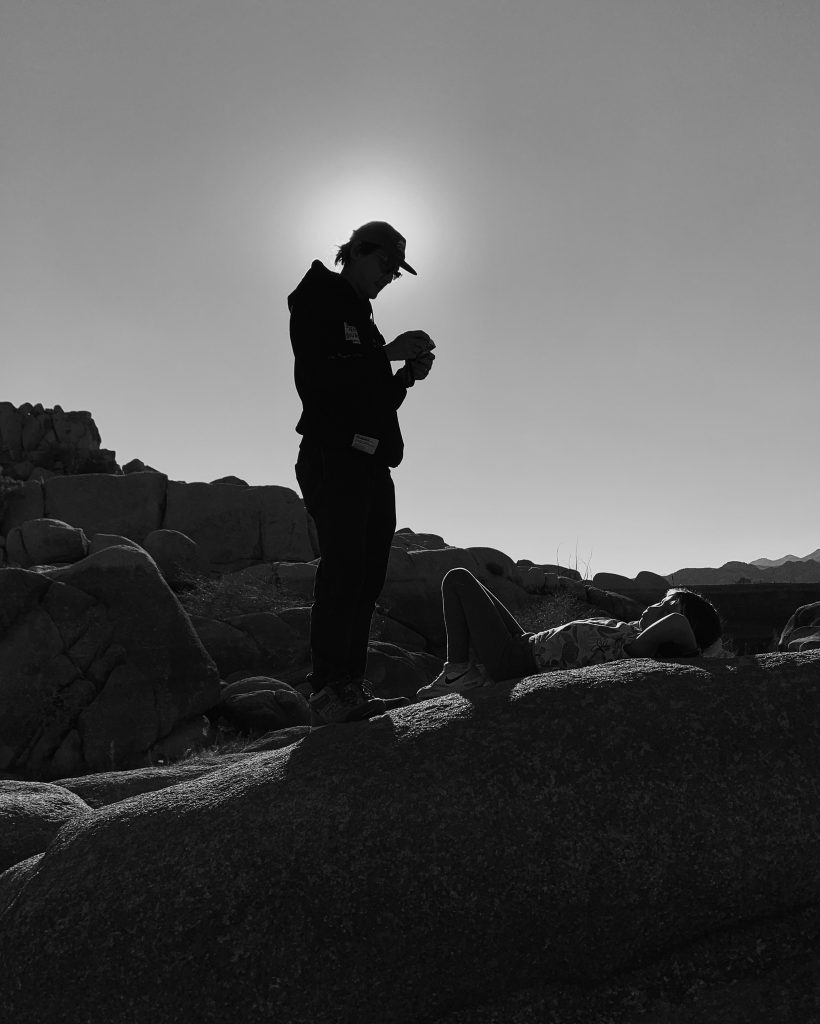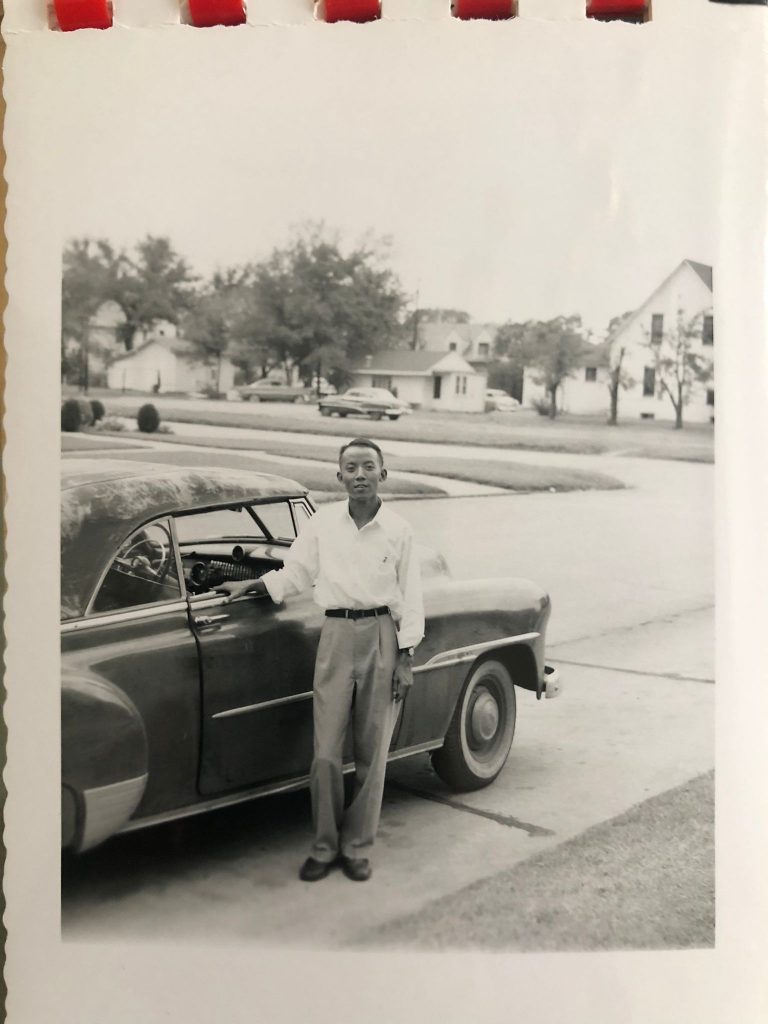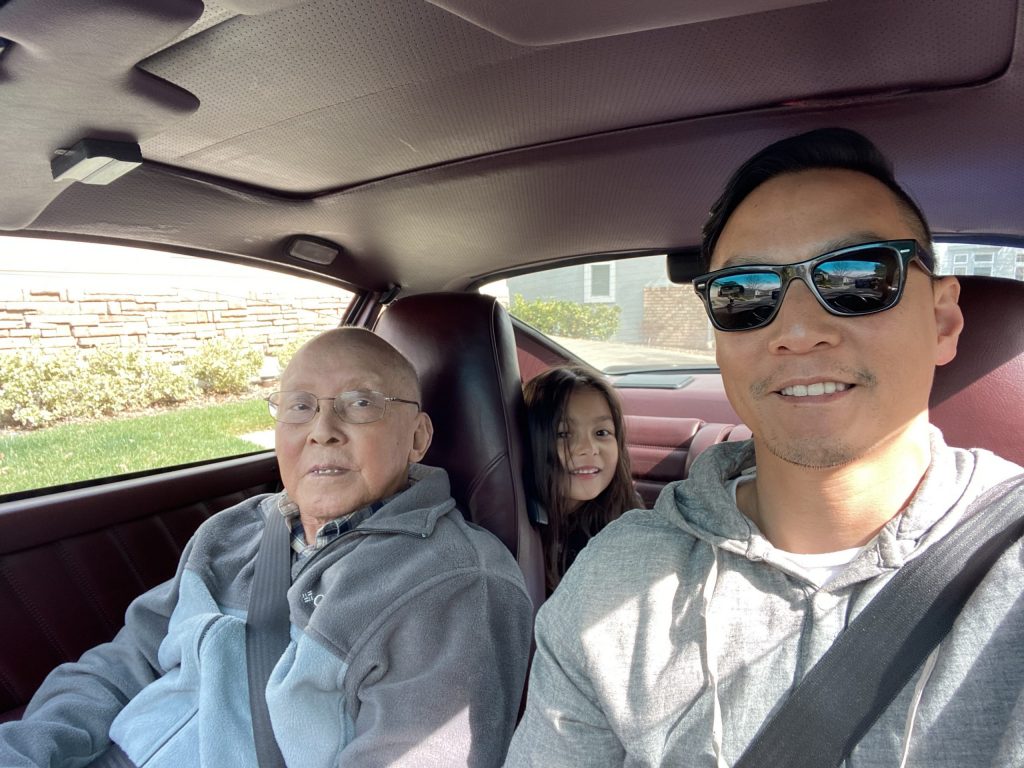
EUGENE KAN: Looking back on your youth, do you think it was in your cards to become an actor?
DANIEL WU: Growing up in San Francisco, I didn’t see anyone on TV who represented me or my story, so I never considered becoming an actor. I was, however, always interested in film and took film courses in college as part of my architecture degree.
I was in Hong Kong for a trip when I got spotted in a bar and asked to be in a TV commercial for Hang Seng Bank. The director of my first movie saw me in that commercial and cast me in his movie. At first, I turned down the offer, thinking that I would ruin his project. This was the director’s dream, his story, and he wanted to tell a beautiful story on screen. As an actor, I was a part of the team that was there to help him tell that story.
Over time, he convinced me that I could do it. And so I gave it a try, promising to do my best and work hard to be good at it. I attribute this mentality to both my martial arts background and my upbringing as an Asian American, where I was told to work twice as hard as everyone else.
Hong Kong empowered me to believe that I could be an actor. If it wasn’t for my 20 years in Hong Kong, I don’t think I would’ve even come back to the United States. But having developed my craft and talent over there, I had something to bring back and work on here.
Starting out without a professional acting background, what was your creative process like?
I had two to three months to prepare for the movie, and I used what I knew, which was the creative process I learned in architecture school. I didn’t know anything about acting, but I looked at this character like it was a building. The foundation of the building is like this per – son’s backstory. And if that foundation is f***ed up, then the whole building’s going to be f***ed up. Then you have the structure of the building, like whether it’s wood or steel or bamboo — that’s the internal strength of the character. Next is the skin of the building, which is what the person is trying to present to the rest of the world.
So I used that process and I just used what I knew, because I look at filmmaking and I look at architecture and I look at any kind of creative field — it’s really the same thing. The medium and form of expression are different, but if you can get to the core of what it is you’re actually trying to do, then you can apply it to anything. Unlike being a fine artist, architecture and filmmaking as commercial art forms require knowledge of production, teamwork, and creating commercially viable products. You have to rely on a group of people getting together to help you realize your vision. I am really thankful for my architecture education setting me up to be a better actor.
Looking back, were there any specific moves you made that really paid off or any missteps that might have negatively impacted your success?
You have to get used to falling down and getting back up, getting knocked down and getting back up. You gotta have a strong character and a strong desire to succeed in order to keep going, regardless of whether you’re in Asia or Hollywood.
People think it was a fairytale story for me, where I was discovered on vacation and chosen to become a movie star and that was it. No! My first day on set I looked around and made the decision that this was what I wanted to be doing. What I loved about architecture school was the creative environment where there’s this energy and buzz and I wanted to be in a field where I could feel that all the time. I walked onto that movie set and I recognized that environment immediately. From that moment on, I committed to the craft of acting. I was observant, I read books about acting, I talked to a lot of senior actors about their processes, but there’s no such thing as perfection. I’ve seen people burn themselves out by trying to stick to a perfect ideal. You have to find moments to relent and places to stick to your guns. I kept trying for perfection and not being able to achieve it, and I realized that you have to be adaptable.
“ ONCE WE STARTED BEING TREATED AS A MONOLITH, IT BECAME CLEAR
THAT EVERYBODY NEEDS TO
GET TOGETHER AND STAND UP. ”

Having successfully worked in both contexts, could you compare your experiences working as an Asian in Asia versus in North America? What made you choose to speak out for more opportunities for Asian Americans?
I don’t really look at myself as an outspoken leader. I just speak my mind. It’s important to do so, but it was a huge transition. Coming back in 2016 was like culture shock to me. When I was doing Into the Badlands , all the Asian American media was making a big deal about what I was doing, “You’re one of the few Asian American males leading a TV show in America right now.” Yeah, but it’s not any different from what I’ve been doing for the past 20 years leading movies in Hong Kong. They kept trying to put me up on a pedestal and making me carry the flag for Asian American males. I didn’t want to do that. I’m just an actor.
But as I spent more time thinking about it, it became really apparent during the Asian hate crimes in 2020 that if we don’t speak up for our own people and collectively get together, nothing will happen. Asian America is very diverse in terms of language and culture. We aren’t a monolith. So it was difficult to see us as one culture that could get together and do something, but once we started being treated as a monolith, it became clear that everybody needs to get together and stand up.
There was a case in New York where an old Chinese lady was lit on fire and slapped in the face. I reached out to the community center that was offering a reward for information to catch the guys that did it and I increased that reward because I was appalled by what was happening. This is way beyond calling someone a “chink.” They caught the guys before the reward was enacted because they were caught for something else, but ultimately nothing happened and it was depressing to see that.
It wasn’t until Vicha Ratanapakdee was killed in San Francisco and then three elderly Asian people got pushed down in Oakland Chinatown that I was like, “What the f***?” I was really pissed and I posted about the attacks. Daniel Dae Kim called me right away. He’s like, “I’m pissed too. Let’s do something about this.” We put up a reward to catch that guy. Nothing came of it, but that’s what started the whole movement of people standing up and saying we’ve had enough of this s***. None of the mainstream media was talking about it, so we wanted to get them talking about it. It wasn’t by plan. I was just mad and I have a platform of like a million people on my Instagram, so I talked about it until somebody noticed.
It was scary at first because I don’t really know a lot about race relations and activism and people were calling me an activist. I’m not an activist. I’m just trying to stick up for my people. There are other people that have been in this space for many years such as Asian Americans for Advancing Justice and all these other groups that have been fighting this fight. I’m just going to use my platform to highlight all the work they’ve been doing and spread the word.
“ If we don’t speak up for
our own people and
collectively get together,
nothing will happen. ”
How do you make sure you’re telling the stories and crafting the characters you want to see while navigating what Hollywood wants?
I’m tired of seeing the same stereotypical characters on screen over and over again. I’m lucky that I’m in a position where I can turn down stuff because I’m not waiting for the next check, but it’s messed up that I have to think in that way at all. There’s still some part of white Hollywood that wants to see the Long Duk Dong* character and they think it’s funny, so we have to make a conscious effort to make a change. That comes from working and collaborating with people on the same page.
One case of this was when I worked with director Lisa Joy on Reminiscence . She had an agenda herself. She said to me something like, “I’m tired of seeing emasculated Asian males on screen and I want to see him be sexy. We’re not seeing that on American screens.” I spent years doing that in Asia and then people don’t see you that way here. They see Asian males as nerdy or funny or weird but never the hero or the sexy guy. So for me, I make sure that I can see the character as a character that I can be proud of and is pushing the bar and changing things a little.
Whether you liked it or not, Crazy Rich Asians was profitable and a turning point in that it opened doors for more opportunities. Hollywood is about making products that sell, not just win awards. If we can prove that there is a market for our stories, they will let us make them. But we need to be careful with how we use those opportunities, not just accepting the status quo, but pushing boundaries.
What do you think would accelerate that?
We’re starting to see change in the three fields that America values the most: entertainment, politics, and sports. People like Congressman Andy Kim and Representative Judy Chu are making headway as are athletes like Shohei Ohtani. We need to support our community in all those fields, not just in Hollywood.
The main message is that we all have to support each other, no matter what our background is. Not just Chinese Americans supporting Chinese Americans or Korean Americans supporting Korean Americans. We have to act in a way where we support each other because we can’t do it separately.



How has your perspective on what it means to be Asian American changed throughout your life?
Being in Asia, where I wasn’t a minority, was very empowering. You’re not thinking about a bamboo ceiling or things like that. You’re doing stuff based on what you want to do. I wasn’t trying to fit into Hollywood like what all my Asian American peers had to deal with for so many years.
In Asia, I just got to work on myself. And everyone I worked with in Hong Kong encouraged me and instilled that belief in me that I could be an actor. That was instrumental in who I am now because, coming back to America, I realized the value of my experiences and that empowers me to work here. There are uphill battles here. If I hadn’t gone to Asia and been given opportunities there, I’d probably be cynical as hell and thick-skinned and angry.
What did you think being an actor would be like and what has been the reality of it?
I think everyone has this misconception that it’s this glamorous thing to do. I was also ignorant in thinking that it’s all about the art form. There’a a lot of hustle and business involved too — it’s a balance of both. I think that being an architect helped me with this because I understood the balance between art and commerce and how to make them work together. You have to understand that your product has to sell and I think I didn’t understand that so much at first. Going in, I was like, “I just get to make cool s***,” before realizing it’s not that easy. You have to make stuff that’s cool, pushes the limits, but also sells.
In 10 years, how will you know your work on and off screen in empowering Asian entertainers has been successful?
Success to me is when Asian American kids are inspired to be actors, performers, singers. It’s already happening now. Kids that looked like me in my generation never said stuff like they want to be an actor or singer or anything like that. I’d like to see more of us in everything and it’s not even a thing you have to talk about anymore. I want to get to the point where I don’t have to count Asian representation anymore. It’s just there. Not just with films like The Farewell and Minari , but also mainstream productions where Asian American stars appear alongside Black, White, and Latinx people, reflecting what our society is today. I see that the younger generation is kicking down the door and saying, “If you’re not going to give me space, I’m going to make my own space and I’m going to have my own followers.” There is nothing to be afraid of anymore. Just go do it. ▲
*Long Duk Dong is a fictional character of a Chinese foreign exchange student played by Gedde Watanabe in Sixteen Candles, a 1984 American coming-of-age comedy film written and directed by John Hughes. This character has been widely called an offensive stereotype of Asian people.

